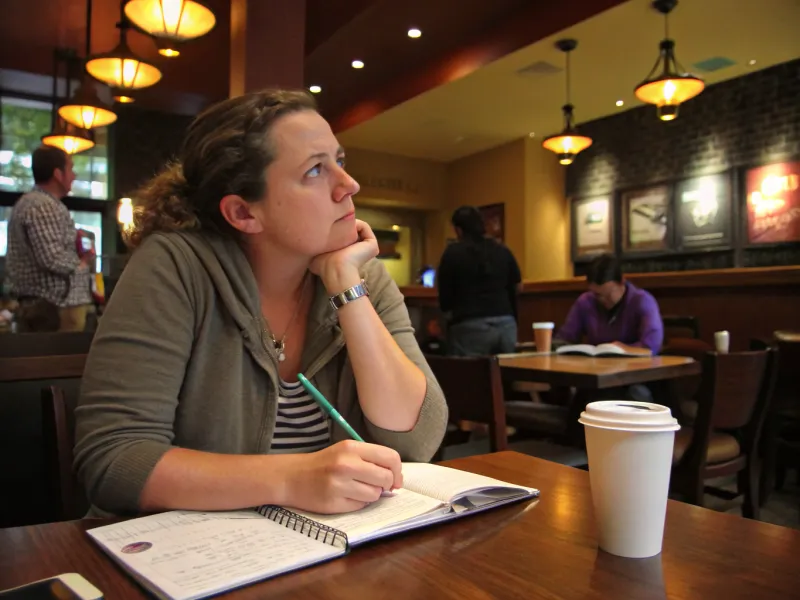31 Signs You Could Be a Narcissist (Without Realizing It)

I used to think narcissists were just over-the-top, self-obsessed people who loved their own reflection—like some Disney villain twirling their mustache in a mirror. Turns out, it’s way more complicated than that.
But then I realized some of the most destructive narcissists don’t even know they are. And that’s what makes them so dangerous—because if you don’t realize you’re the problem, you never think to change.
So, let’s get real. Here are sneaky signs you might be a narcissist… without even realizing it. Read with an open mind. You might just see yourself in ways you never expected.
1. Constant Need for Validation

You find yourself continually seeking approval from others, be it through social media or in personal interactions. It’s as if you can’t feel complete without constant validation that you’re doing well or looking good. This behavior might seem normal due to today’s digital age, but when it becomes an obsession, it can indicate deeper issues.
In relationships, this manifests as a perpetual need for compliments from your partner. You might even catch yourself fishing for them with subtle cues or leading questions. This need can create a divide, where one partner feels emotionally drained by the constant demand for affirmation.
Take a moment to reflect on how much of your self-worth hinges on others’ opinions. The journey to self-awareness often starts by questioning these patterns. Could it be that by needing others’ validation, you’re avoiding facing your internal insecurities?
2. Monopolizing Conversations

You find yourself dominating conversations, turning every topic back to your experiences or achievements. While sharing is a natural part of communication, it becomes problematic when you don’t leave room for others. Such behavior often leaves partners feeling unheard and unimportant, a common thread in relational breakdowns.
Consider how often you give others the space to share their thoughts and feelings. Do you listen actively, or are you simply waiting for your turn to speak? This can be quite revealing about underlying narcissistic tendencies that might be contributing to relationship strain.
Reflect on the value of truly connecting with others through listening. Maybe it’s time to re-evaluate how you interact in conversations and whether you’re fostering a two-way street or creating a one-person show.
3. Inability to Handle Criticism

Criticism feels like a direct attack on your character, and you react with defensiveness or even hostility. While nobody enjoys negative feedback, an inability to handle it gracefully can signify narcissistic traits.
Think about how you feel when someone offers constructive criticism. Do you dismiss it without consideration, or do you react with anger? This knee-jerk defensiveness might be creating unnecessary rifts in your personal and professional relationships.
What if accepting feedback could actually be a path to growth? It may be time to practice openness to criticism, viewing it as an opportunity rather than an affront. The ability to reflect and adapt could transform how you relate to others.
4. Always Playing the Victim

Every situation somehow ends up highlighting your grievances. You find it hard to accept responsibility, often positioning yourself as the victim in stories. This can be a subtle form of manipulation, diverting attention and sympathy towards you.
Consider whether you genuinely believe you’re always wronged, or if it’s become a convenient narrative. By casting yourself as the victim, you might be avoiding accountability, pushing the blame onto others.
Try to recognize the power dynamics at play when you share these stories. Could acknowledging your part in issues lead to healthier, more balanced relationships? It’s a challenging shift but one that fosters personal growth and true connection with those around you.
5. Need to Be the Center of Attention

You thrive on being the center of attention, and when the spotlight shifts, it leaves you feeling uneasy. This can be harmless fun at times, like during social gatherings, but becomes problematic when it’s constant.
Reflect on why being the focal point is so important. Is it about self-worth or filling a deeper void? Your interactions could be more balanced if you focus on sharing the limelight rather than hogging it.
Would stepping back now and then allow others to shine too? You might discover new depths in your relationships and a more genuine sense of connection. After all, sharing attention can be just as rewarding as receiving it.
6. Difficulty in Empathizing with Others

Empathy feels foreign, and you struggle to relate to others’ emotions. This isn’t about being cold-hearted but often stems from being too absorbed in your own feelings.
Think about a recent event where someone needed your emotional support. Did you offer it, or was it more challenging than expected? This difficulty could signal that you’re more focused on your experience than theirs.
Cultivating empathy can greatly enhance your relationships. What if you consciously tried to understand others’ emotions and perspectives? You might find that opening your heart to others’ experiences creates a richer tapestry of connections in your life.
7. Constantly Comparing Yourself to Others

You often measure your life against others, needing to feel superior to validate yourself. This constant comparison can create a cycle of envy and dissatisfaction, where nothing you achieve feels enough.
Consider how often you find yourself comparing your achievements to those around you. Does it motivate you, or does it feed into a sense of inadequacy? This pattern can indicate underlying narcissistic tendencies that affect your self-esteem and connections.
Is it possible to shift focus from comparison to self-improvement? Recognizing your worth independently of others can lead to healthier relationships and a more fulfilling life. You might discover that true contentment comes from within, not from outshining others.
8. Feelings of Entitlement

You believe you deserve special treatment or privileges without earning them. This sense of entitlement can manifest in everyday interactions, expecting more than what’s fair or reasonable.
Reflect on a recent situation where you felt you deserved more than others. Was it truly justified, or rooted in entitlement? This mindset can create friction, where partners feel their needs are secondary to yours.
Could re-evaluating these expectations help balance your relationships? Perhaps understanding that everyone deserves fair treatment might lead to more equitable interactions. You might find that letting go of entitlement opens doors to more genuine connections and mutual respect.
9. Tendency to Gaslight

Gaslighting involves manipulating others into doubting their reality, subtly twisting facts to maintain control. It’s a tactic where one partner constantly undermines the other’s perception. This behavior, though sometimes unconscious, is a hallmark of narcissistic tendencies.
When was the last time you found yourself altering facts to suit your narrative? Was it a conscious decision or a reflexive action? Such manipulation can deeply erode trust and create toxic dynamics.
What if honesty became your new standard? Acknowledging this tendency could be the first step to building more transparent and trusting relationships. It’s about valuing truth over control, fostering a more authentic connection with others.
10. Lack of Genuine Apologies

Apologies don’t come easily, and when they do, they often lack sincerity. This reluctance can lead to unresolved conflicts and lingering resentment.
Think about your approach to apologies. Do you avoid them, or offer them without real intention? This can be a sign of narcissism, where admitting fault feels like a personal failure.
What if you embraced genuine apologies as a strength rather than a weakness? Offering a heartfelt apology could repair fractured relationships and demonstrate maturity. It’s a step towards personal growth, fostering deeper connections through humility and understanding.
11. Exaggerating Personal Achievements

Your accomplishments are often embellished, turning minor successes into grand victories. While confidence is healthy, exaggeration can alienate others, especially if they perceive you as insincere.
Reflect on how you present your achievements to others. Are they accurate portrayals, or do you inflate them for impact? This behavior might stem from a need to overcompensate for insecurities.
Could embracing authenticity enhance your relationships? By celebrating your true achievements without embellishment, you promote genuine respect and admiration. It’s about valuing honesty over impression, building trust and connection.
12. Obsessed with Personal Image

You spend an inordinate amount of time perfecting your personal image, whether through grooming, fashion, or social media. While caring about appearance is normal, obsession can mask deeper insecurities.
Consider why appearance holds such importance for you. Is it about self-expression, or does it hide a lack of self-esteem? This fixation might be affecting how you connect with others.
Could focusing on inner qualities rather than outward appearance lead to more meaningful relationships? Embracing your authentic self might attract more genuine connections, where inner beauty shines brighter than any exterior façade.
13. Difficulty Maintaining Long-term Relationships

Longevity in relationships is elusive, with patterns of short-lived connections. This difficulty often stems from underlying narcissistic behaviors that erode trust and intimacy.
Consider the common threads in your past relationships. Are there recurring issues that contribute to their demise? This might reveal areas needing change to foster lasting bonds.
What if committing to personal growth could transform your relationship dynamics? By addressing these patterns, you might build more enduring connections, characterized by mutual respect and understanding. It’s about creating a foundation for deep, lasting relationships.
14. Lack of Self-Reflection

Self-reflection feels foreign, and introspection is often avoided. This lack of inward focus can lead to repeated mistakes and shallow self-awareness.
Reflect on how often you engage in self-examination. Do you shy away from it, or embrace it as a tool for growth? This avoidance might be preventing personal and relational evolution.
Could committing to regular self-reflection enhance your relationships? By understanding your actions and motivations, you might foster deeper connections and personal transformation. It’s about embracing growth and change to build a more fulfilling life.
15. Blaming Others for Personal Failures

When things go wrong, the blame is often placed on others instead of taking responsibility.
Reflect on how you handle failures. Do you acknowledge your role, or shift blame elsewhere? This behavior can prevent personal growth and erode trust.
Could embracing accountability lead to more authentic relationships? By owning your actions, you foster trust and maturity, paving the way for deeper connections. It’s about valuing responsibility over deflection, promoting personal and relational development.
16. Manipulating Situations for Personal Gain

You often find yourself subtly altering situations to suit your needs, a hallmark of manipulation. This behavior can create toxic dynamics, where trust is eroded.
Consider your motives in interactions. Are they self-serving, or genuinely mutual? This tendency might hinder authentic relationship building.
What if you focused on fairness and mutual benefit instead? By valuing transparency and honesty, you might cultivate more trusting and genuine connections. It’s about fostering a collaborative rather than competitive dynamic in relationships.
17. Always Needing to Be Right

The need to always be right can create conflict, as compromise feels like defeat. Insistence is a common issue, often leading to irreparable rifts.
Think about how often you insist on your perspective, even at the cost of harmony. Does this need hinder your relationships? It might reflect deeper insecurities needing examination.
Could embracing flexibility and compromise deepen your connections? By valuing others’ viewpoints, you foster mutual respect and understanding, creating more harmonious relationships. It’s about prioritizing connection over ego, building stronger, more resilient bonds.
18. Inability to Forgive and Forget

Holding onto grudges is easy, forgiveness feels nearly impossible. This inability to let go often leads to toxic resentment and fractured relationships.
Reflect on how grudges affect your life and relationships. Do they provide a sense of control, or do they weigh you down? This inability might prevent emotional healing and growth.
What if letting go could lead to liberation and stronger connections? By embracing forgiveness, you might foster deeper, more compassionate relationships, allowing healing and transformation. It’s about valuing freedom over resentment, creating a more fulfilling life.
19. Constantly Seeking Praise

Praise is addictive, and you crave it constantly, seeking validation through others’ admiration. While recognition is healthy, needing it constantly can indicate underlying insecurities.
Consider how often you seek external validation. Does it bolster your self-worth, or does it mask deeper issues? This craving might affect how you relate to others, creating pressure to constantly reassure.
Could finding internal validation lead to more balanced relationships? By valuing self-worth independently, you might foster more genuine connections, free from dependency on others’ approval. It’s about cultivating inner confidence for more fulfilling relationships.
20. Projecting Personal Issues onto Others

You often shift personal insecurities onto others, projecting issues as if they belong to them. This defense mechanism can create misunderstandings and conflict.
Reflect on how often you project your insecurities onto others. Does it provide temporary relief, or does it create more tension? This behavior might prevent true self-awareness and growth.
Could embracing introspection lead to healthier dynamics? By owning your issues, you foster maturity and understanding, paving the way for more authentic connections. It’s about valuing self-awareness over projection, promoting personal and relational development.
21. Focusing on Flaws in Others

Spotting others’ faults comes naturally, overshadowing empathy and understanding. Critical perspective can create division and isolation.
Consider how often you focus on others’ flaws. Does it offer a sense of superiority, or does it hinder genuine connection? This behavior might reflect underlying insecurities needing attention.
Could embracing acceptance transform your relationships? By focusing on understanding and empathy, you might foster deeper, more compassionate connections. It’s about valuing harmony over judgment, creating a more inclusive and accepting environment.
22. Difficulty Accepting Help

Accepting help feels like an admission of weakness, creating unnecessary burdens. Reluctance can lead to isolation and burnout.
Reflect on why accepting help is challenging. Does it undermine your independence, or does it mask deeper insecurities? This reluctance might prevent collaborative and supportive relationships.
Could embracing vulnerability lead to stronger connections? By valuing support and collaboration, you might foster more balanced and harmonious relationships. It’s about recognizing the strength in unity, creating a more fulfilling and connected life.
23. Feeling Misunderstood or Unappreciated

You often feel like nobody truly understands or appreciates you, leading to a sense of isolation. This perception can create barriers, preventing genuine connection.
Reflect on why you feel misunderstood. Is it rooted in reality, or does it stem from unmet expectations? This feeling might prevent authentic and fulfilling relationships.
Could fostering open communication lead to more understanding connections? By valuing transparency and honesty, you might create more meaningful and supportive relationships. It’s about embracing clarity and openness, fostering deeper emotional bonds.
24. Impatience with Others

Patience is a virtue you struggle with, easily frustrated by others’ pace or mistakes.
Reflect on how impatience affects your interactions. Does it stem from high expectations, or does it mask deeper insecurities? This behavior might hinder collaborative and supportive relationships.
Could cultivating patience lead to more harmonious connections? By valuing understanding and empathy, you foster more balanced and respectful relationships. It’s about embracing calm and composure, creating a more supportive and nurturing environment.
25. Difficulty in Sharing Emotions

Expressing emotions feels daunting, leading to emotional bottling and isolation. This difficulty can create barriers to intimacy and understanding.
Reflect on why expressing emotions is challenging. Is it rooted in fear of vulnerability, or does it stem from deeper insecurities? This reluctance might prevent authentic and fulfilling relationships.
Could embracing emotional openness lead to more meaningful connections? By valuing transparency and honesty, you might create deeper emotional bonds, fostering more supportive and nurturing relationships. It’s about valuing openness over detachment, creating a more fulfilling emotional life.
26. Jealousy of Others’ Success

Success in others sparks jealousy, overshadowing genuine happiness for them. This envy can create competitive dynamics, eroding relational harmony.
Reflect on why others’ success triggers envy. Does it diminish your achievements, or does it highlight insecurities? This feeling might prevent genuine and supportive relationships.
Could celebrating others’ success lead to more harmonious connections? By valuing mutual support and encouragement, you foster more balanced and appreciative relationships. It’s about embracing joy over jealousy, creating a more fulfilling and connected life.
27. Inflexibility in Opinions

Stubbornness defines your approach, making compromise feel impossible.
Reflect on why flexibility is challenging. Does it undermine your authority, or does it mask deeper insecurities? This inflexibility might hinder collaborative and supportive relationships.
Could embracing openness lead to more harmonious connections? By valuing understanding and empathy, you foster more balanced and respectful relationships. It’s about valuing adaptability over rigidity, creating a more inclusive and accepting environment.
28. Need for Constant Reassurance

Reassurance is a constant need, seeking validation through others’ approval. While seeking comfort is normal, this dependency can indicate deeper insecurities.
Consider why reassurance is necessary. Does it bolster your self-worth, or does it mask deeper issues? This craving might affect how you relate to others, creating pressure to constantly reassure.
Could finding internal validation lead to more balanced relationships? By valuing self-worth independently, you might foster more genuine connections, free from dependency on others’ approval. It’s about cultivating inner confidence for more fulfilling relationships.
29. Overwhelming Sense of Self-Importance

You believe your importance surpasses others, expecting recognition and admiration. This sense of superiority can create relational imbalances.
Reflect on why self-importance is necessary. Does it affirm your worth, or does it mask insecurities? This belief might prevent authentic and supportive relationships.
Could valuing mutual respect lead to more harmonious connections? By embracing equality and humility, you foster more balanced and supportive relationships. It’s about valuing connection over superiority, creating a more inclusive and accepting environment.
30. Difficulty Trusting Others

Trust doesn’t come easily, leading to guarded and distant relationships. This mistrust can create barriers to intimacy and connection.
Reflect on why trust is difficult. Does it stem from past experiences, or does it mask deeper insecurities? This reluctance might prevent genuine and fulfilling relationships.
Could embracing trust lead to more meaningful connections? By valuing openness and vulnerability, you foster more supportive and intimate relationships. It’s about valuing trust over suspicion, creating a more fulfilling emotional life.
31. Overly Competitive Nature

Competition feels like a driving force, eclipsing collaboration and harmony. This competitive edge can create tension, acting as a relational barrier.
Reflect on why competition is necessary. Does it fuel your drive, or does it mask insecurities? This tendency might prevent cooperative and supportive relationships.
Could valuing collaboration lead to more harmonious connections? By embracing teamwork and mutual support, you foster more balanced and appreciative relationships. It’s about valuing cooperation over competition, creating a more fulfilling and connected life.
